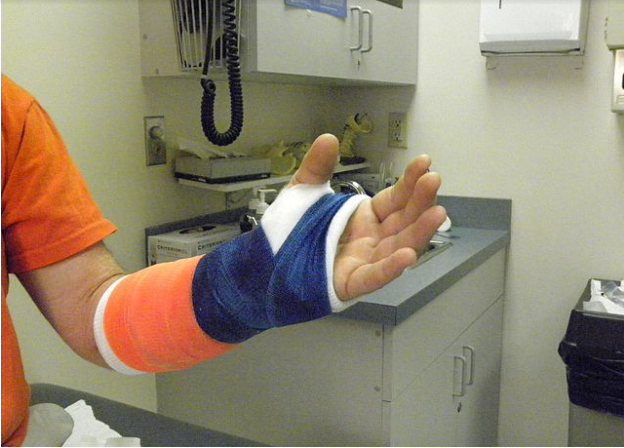Injured? Make Sure Your Losses Aren’t Painful with This Guide

A personal injury isn’t just painful and inconvenient.
It can also be extremely expensive.
Here’s a quick guide to covering any losses you suffer as a result.
Considering the Losses You May Suffer

People often talk about the financial losses people may suffer when they’re injured. But exactly are those losses?
Well, there are more financial risks involved in injuries than you may think. Perhaps the most obvious loss has to do with medical bills. This, of course, depends on what part of the world you’re in.
In much of the world, your medical bills aren’t going to be disastrous. (In fact, in most of the world, you won’t have to pay anything for essential treatment.)
But if you live in America, you’re not going to be so lucky. Even urgent, life-saving treatment is going to result in a hefty bill being placed in your hands. Read about negotiating hospital bills at http://money.howstuffworks.com/personal-finance.
Perhaps the loss that is next up in terms of obviousness is loss of earnings.
This can come in two forms. If you were unable to attend your regular job due to your injury, then you’ll be losing out on the income from that. (Unless you have an extremely considerate boss!)

The other is that the injury actually renders you incapable of doing the job any more. This means you end up having to take another job – one that may not pay quite so well. (This is more formally referred to as a loss of earning capacity.)
Prescription charges are also something you need to consider. (Though people usually lump these charges in with medical bills.)
Travel expenses are also a common loss. The travel to and from various medical facilities all need to be considered. If the injury requires you to use expensive transport such as a taxi, then that counts as well.
Of course, pain and suffering may also be considered losses in a court of law.
General Damages and Special Damages
You may have noticed that there is a big difference between a few of the losses I just listed. Here’s as good a place as any to make sure you’re familiar with the concept of damages.

Damages is a legal term referring to the compensation paid to cover the losses you suffer. (This is what people mean when they say that someone is “seeking damages”.) Damages are split into two categories: general damages and special damages.
General damages refer to the losses that are clearly the direct result of someone’s wrongdoing. (This is assuming that the injury was caused by someone else.)
General damages are very difficult to defend against. This is because there’s a clear link between the accident and the subsequent loss. The pain and suffering I just mentioned are clear types of general damages.
Physical pain, mental anguish, lowered quality of life, impairment, disfigurement… There are more, but they’re not exactly fun to list!
The sort of damages that we’re referring to in the bulk of this article are special damages. Simply put, these are the financial losses you face.
Loss of wages, loss of earning capacity, These are easier to calculate in terms of required compensation. After all, quantifying the above damages is basically impossible.
But that doesn’t mean that special damages are easy to sort out. Read more about special damages at http://legal-dictionary.thefreedictionary.com/.
Getting the Compensation You Need

It should probably go without saying that you should seek legal assistance in this matter. A lot of people may be under the impression that insurance companies will sort the whole thing out.
Compensations can be expected from your insurance company, or the responsible party’s insurance company. And, in some cases, one of these companies may very well do good by you.
But the problem with insurance companies is that they will seek to pay as little as they can.
After all, they’re in this business to make a profit. (Which isn’t in itself a bad thing, of course. But it does need to be considered when you remember that the money comes out of their pockets.)
Even if they do agree to pay you, the sum might not cover everything you need it to. And this is why you should always consult with a lawyer when you’re facing a costly personal injury.
You should definitely read a lot more about personal injury law. There’s plenty of information to read at https://www.warriorsforjustice.com/fort-worth-personal-injury-lawyer/.
Minimize and Mitigate: What You Need to Understand

There’s a common misconception when it comes to seeking compensation, or damages, in a personal injury case. (Okay, so there are loads of misconceptions. But let’s take them one at a time, okay?)
And that’s that every single cost relating to your injury can be paid back if you win a special damages claim. Well, that’s not entirely true. When you’re dealing with this sort of case, you actually have somewhat of a responsibility.
And that responsibility comes in the form of minimization and mitigation.
Was there a reasonable method you could have taken to lessen your costs, but didn’t take in favor of more expensive options?
Then this could work against you when making a claim for 100% compensation of your losses. Let’s say that you have a leg injury. There’s a bus stop right outside your house.
A ticket will cost you $2 and it will take you straight to the clinic where you buy your pain medication. But, for whatever reason, you call up a cab to take you there and back.
The fare is $40. Well, don’t expect to make that $40 back. You clearly took a more expensive option when a perfectly reasonable and cheaper alternative was available!
You shouldn’t spend any more than you have to on your road to facilitate your recovery. And this also goes for any personal items that you have to replace because they were damaged in the same accident.
If you have to buy new clothes, or even a new car, the replacements need to be of similar value to the original.
Keeping Track of Your Finances

What should be clear now is that it’s crucial you keep track of your finances. List all of your expenses.
Keep every receipt you possibly can. Account for all the payments you’ve made on a credit or debit card.
If you don’t keep track of your finances, it will be harder to cover your losses later.
It will also make it harder for you to stem the flow of money from your bank account that often accompanies an injury. Short-term solutions are crucial at this point.
So what are you doing to avoid the painful cost of an injury? Share your thoughts, comments, and stories below.
Cheers!






